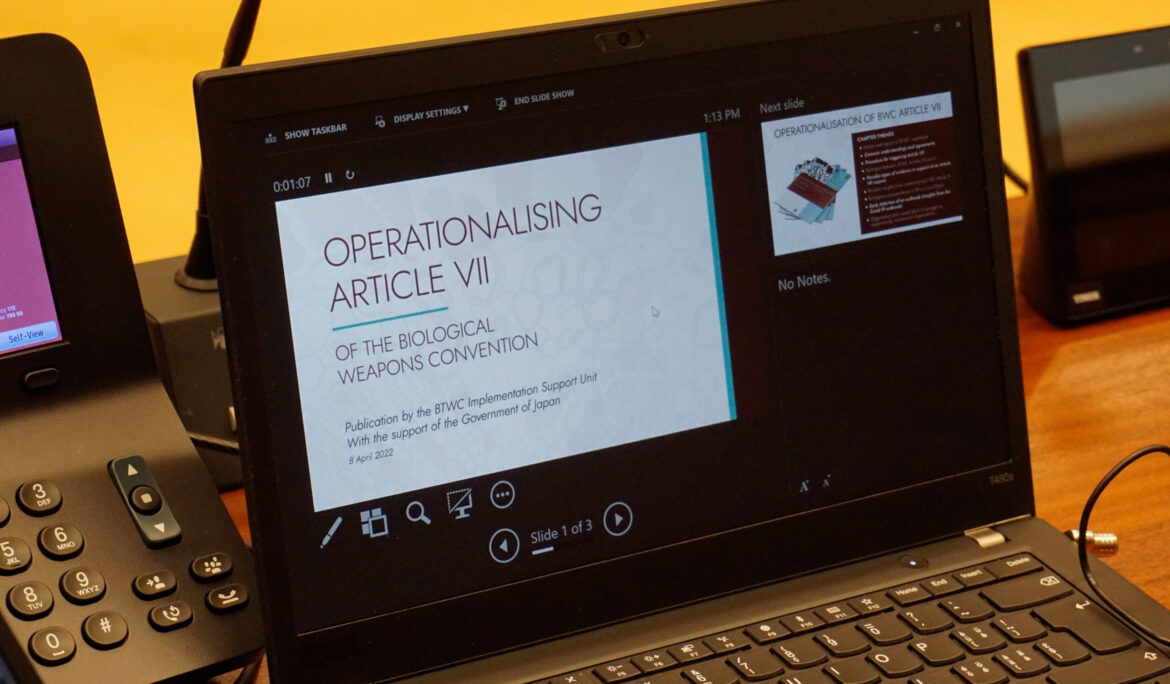Operationalising BTWC Article VII – A Task for the forthcoming Review Conference
[This new publication by the Implementation Support Unit of the Biological Weapons Convention and UN Office for Disarmament Affairs was presented on 8 April to delegates participating in the Preparatory Committee meeting in Geneva ahead of the Review Conference later in the year. The text below is from the preface.] Article VII is arguably one of the least detailed provisions in the Biological Weapons Convention (BWC). It comprises a single sentence: Each State Party to this Convention undertakes to provide or support assistance, in accordance with the United Nations Charter, to any Party to the Convention which so requests, …
Impunity through knowledge management: The legacy of South Africa’s CBW programme
Book review: Brian Rappert and Chandré Gould, The Dis-Eases of Secrecy: Tracing History, Memory & Justice (Jacana Media: Johannesburg, 2017), 261p. It took me almost a year to write this book review. There are reasons why. First, the book is not that easy to read. While one can read it linearly (that is one page after another, as one would normally do), it instead invites readers to follow the logic of the argument, which entails dashing back and forwards from one part in the book to another. Second, the insights are profound, and the reader needs to let them sink …
Becoming the largest weapon-control treaty
The Organisation for the Prohibition of Chemical Weapons (OPCW) has just announced the accession of Angola to the Chemical Weapons Convention (CWC). The country deposited its instrument of accession with the UN Secretary-General on 16 September, which means that it will become a party to the CWC 30 days later, that is, 16 October. Angola will thus be the 192nd state to join the OPCW. No other treaty limiting possession or use of a particular type of weaponry can boast that many parties. The Non-Proliferation Treaty (NPT) has 191; the Biological and Toxin Weapons Convention (BTWC) 173. Middle East – …
Beneath the Crust …
… the lava continues to flow unseen by the casual observer standing above On 3 November I was invited to speak at an international conference in Brussels organised by the European Union (EU) Non-Proliferation Consortium. The session was called: The Biological and Toxin Weapons Convention (BTWC) – Maintaining Relevance. I found the title intriguing. Is the BTWC losing its relevance one way or another? Is this treaty in jeopardy? A widely shared opinion has it that the BTWC is a weak treaty. Yet always unspoken remain the criteria by which people assess the treaty’s weakness. They often point to the …
Non-proliferation assistance: A proliferation of national focal points?
On 9 December I attended a one-day seminar entitled Assistance and capacity-building in the context of UN Security Council Resolution 1540, Disarmament and Non-Proliferation in Addis Ababa, Ethiopia. It took place in one of the committee rooms in the old building of the African Union Commission. It had none of the trappings of many modern high-tech venues, but offered all amenities one can wish for during a day-long meeting: an electricity plug under the desk (a civilisational advance that has yet to reach the main room for meetings of the Biological and Toxin Weapons Convention, or BTWC, at the United …

